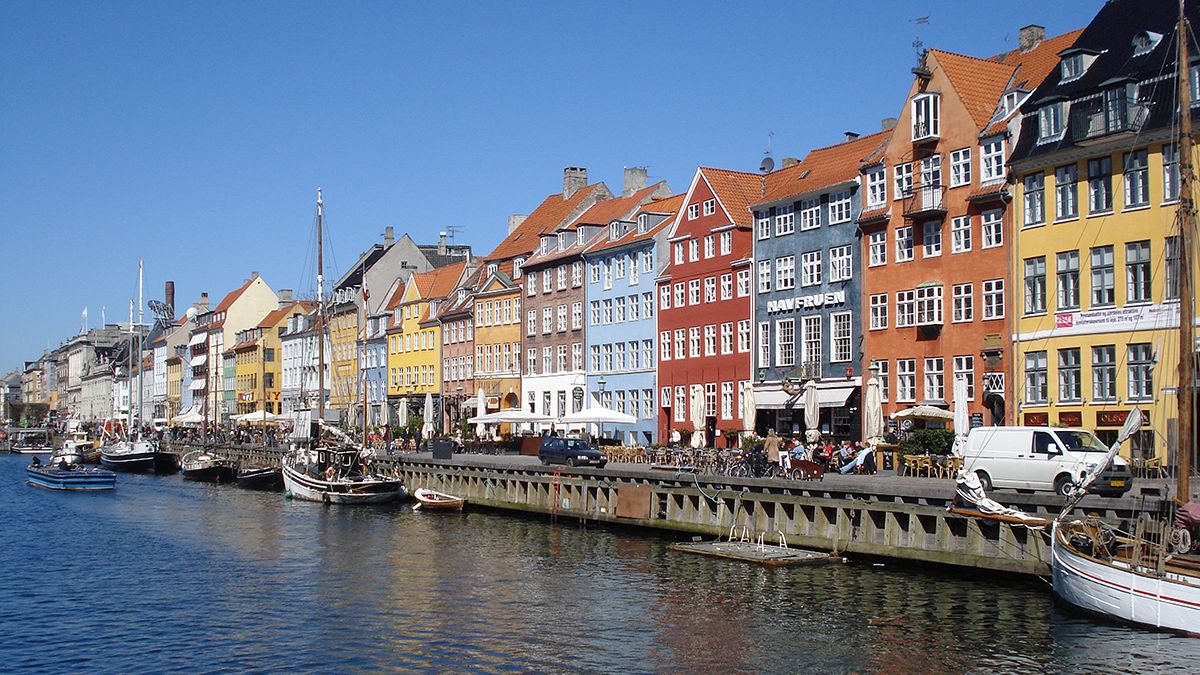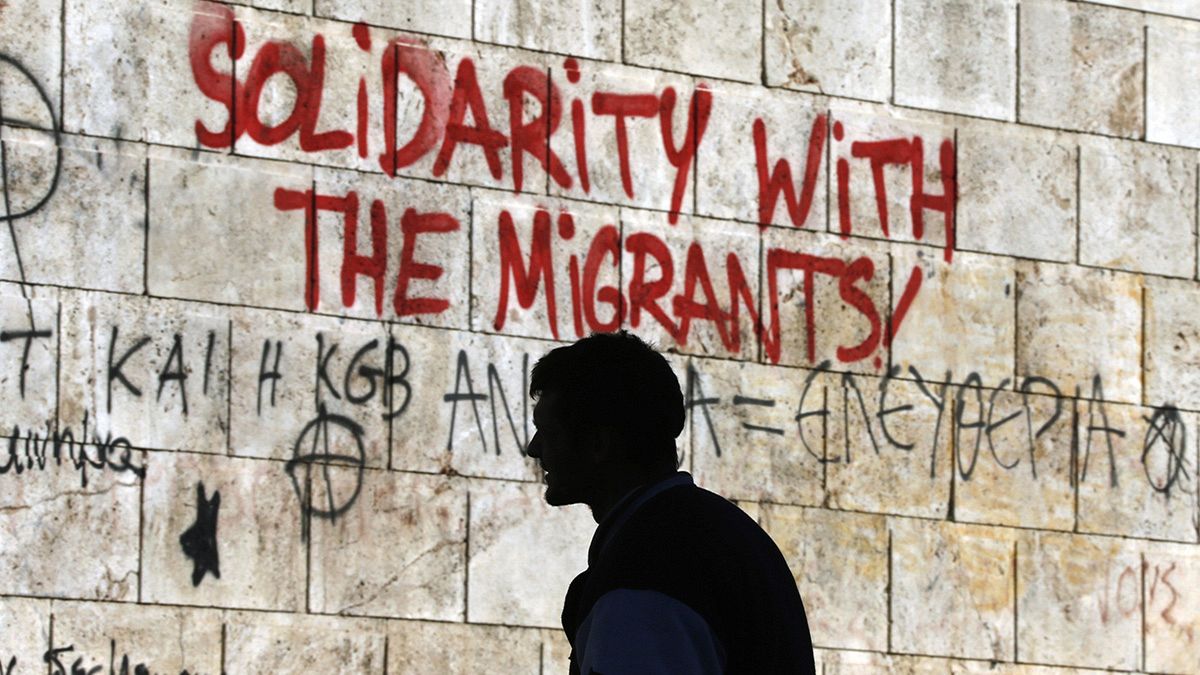Athens, Rome and Malta’s Valletta are Europe’s least tolerant capital cities towards foreigners, a euronews study of official data reveals.
Nearly half of those surveyed in Greece’s capital ‘strongly agree’ foreign citizens are a bad thing for the city, according to figures from Eurostat. The proportion of foreigners in central Athens is 17.4 percent, around one-in-six.
In Rome, where foreigners make up just 8.5 percent of the population, 16 percent of those surveyed believe they are not positive for the city.
In Valletta – where those without Maltese citizenship make up just 4.1 percent of the population – nearly one-in-seven think foreigners are a bad thing.
European Network Against Racism (ENAR) says xenophobia has been fuelled in Greece, Italy and Malta by the economic crisis and their position as the doors to Europe for asylum seekers.
Michael Privot, director of ENAR, said: “These countries are known for their restrictive migration policies and negative media and political discourses about migration.
“As an example, Maltese policies include measures of systematic detention of asylum-seekers and undocumented migrants, who are treated like criminals and as a result often perceived as such by the population.
IN SUMMARY
Athens is the most hostile capital to foreigners, with the highest proportion of people believing they are bad for the city. Next is Rome, followed by Valletta in Malta.
Tallin is the most tolerant towards foreigners, followed by Copenhagen, Vilnius and Zurich.

Copenhagen – one of Europe’s most tolerant capital cities towards foreigners?
Ljubljana in Slovenia is the best at integrating foreigners. Next comes Valletta and then Luxembourg.
Athens is the worst at integrating foreigners, followed by Vienna, Oslo, Berlin, Stockholm, Rome, Helsinki.
Luxembourg has the highest proportion of foreign citizens, followed by Brussels and Zurich.
Warsaw has the lowest proportion of foreigners. Next is Sofia and then Vilnius.
There is little correlation between proportion of foreign citizens and opposition to them. For instance more than one-in-five people in Tallin, Estonia, is foreign, the sixth highest, but just one percent of those asked in the city ‘strongly agree’ non-natives are a bad thing.
The vast majority questioned are not strongly against foreigners, only around a quarter of cities had opposition in double figures.
“They are also countries (in particular Greece) which have been hardest hit by the economic crisis and austerity measures, which has also fuelled xenophobia. In Greece for instance, issues relating to immigrants and refugees featured heavily in the campaigns of all the major political parties during the 2012 election.
“This allowed far-right groups to exploit the economic crisis to increase their popularity and recruit members in the poorer areas of the city, and led to an explosion of anti-migrant rhetoric and violent attacks against Asian and African migrants. This media and political discourse has largely contributed to a negative public perception of migrants, asylum seekers and ethnic and religious minorities, who are perceived as stealing job opportunities, working for less pay, benefiting from social services and perpetrating violent crimes.”
It comes after a damning report on Greece’s treatment of “irregular migrants”. The Council of Europe Committee for the Prevention of Torture (CPT) said the conditions in which irregular migrants were held in Greek police stations were “totally unacceptable”.
The report reads: “In one station, two or more women were held for months in a dark, mouldy and dilapidated basement cell of a mere 5m² with no access to outdoor exercise or hygiene products. The CPT calls upon the Greek authorities to take urgent steps to transfer detained irregular migrants to specially-designed centres and to no longer hold them in police stations.”
FOREIGNERS IN EUROPEAN CAPITAL CITIESThis shows, in the second column, the % of foreigners in a city, the third, the % of people who ‘strongly’ disagree foreigners are good for the city, and, the fourth, the % of people who ‘strongly’ think foreigners are well-integrated. *Foreigners in city %*Foreigners ‘bad for city’ %*Foreigners well integrated %Luxembourg63.8*3*22Brussels33.81411Zurich30.9214***Riga26.0119London21.61015Tallin21.118Dublin20.3712Vienna20.164Athens17.4443Madrid15.51012Paris14.877Copenhagen14.229Oslo14.234Berlin14.144Prague13.177Amsterdam12.845Stockholm10.244Rome8.5164Helsinki8.044Ljubljana7.2435Lisbon6.336Valletta4.11528Budapest3.3621Bratislava3.148Vilnius1.4215Sofia1.0913Warsaw0.63**8 Source: Eurostat/Eurobarometer. Data not available for Zagreb, Nicosia and Bucharest
Data in the third and fourth columns is from a Eurobarometer survey. People were asked whether they strongly agree, somewhat agree, somewhat disagree or strongly disagree with various statements. For the avoidance of doubt, we have only used data from responses that either strongly agreed or strongly disagreed.
Mr Privot added: “Greece has also been condemned repeatedly by the European Court of Justice and European Court of Human Rights for systemic failures in abiding with its obligations under EU and international law as regards asylum seekers, refugee protection and respect of human rights.
“Instead of scapegoating minorities and migrants, decision makers and politicians should send the message that migration and diversity contribute to European social, political, cultural and economic prosperity. There is a need for courageous political leadership, with leaders who understand the value of migration and are willing to speak out on this.”
Figures from Eurostat show Greece approved just four percent of initial asylum applications in 2013.
Euronews’ expert on Greece said: “Citizens in Athens, and especially in the centre of Athens and areas like Omonoia, Agios Panteleimonas and Patisia, where most immigrants live, usually protest against foreigners because they believe – after being brainwashed by Golden Dawn – they are taking their jobs and that they are responsible for robberies and other crimes.
“These areas used to be the most elite areas of Athens during the 60s, 70s and 80s but later Greeks left the centre for the suburbs. So the rents became cheaper than other areas and immigrants moved in. At the beginning of 90s they were mostly Albanians but after 2000 mostly Arabs and Africans.
“The same problem can also be seen in the city of Patra, a big Greek port, where most immigrants try to escape and go to Italy. Greeks in Patra say immigrants are responsible for most of the robberies that happen.
“Even immigrants who are working in Greece have problems with their employers. The most “famous” incident was in Manolada where a Greek employer allegedly shot foreign strawberry pickers
% FOREIGNERS IN EUROPE’S CAPITAL CITIES
Hover over a country to see its capital’s foreign citizen percentage.
Proportion of foreigners in European capital cities | Create Infographics
